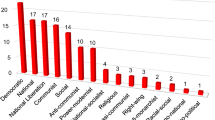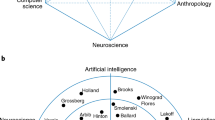Abstract
WITHIN the past five years, centenaries, bicentenaries and tercentenaries have been much in vogue. Every town or institution or event which has claim to distinction has sought the excuse of the calendar to remind the world of its claims to greatness. Thus we have recently celebrated the centenary of Faraday's discovery of the principles of electromagnetism and the bicentenary of Watt's invention of the steam engine discoveries which have introduced the eras of electricity and of mechanical power. The city of Chicago has sought to tell us that the progress of mankind really began with the founding of that community, and has led us to spend millions of dollars to gain the impression that there is really some causal relationship between Chicago and world progress. In my part of the country, the city of Boston and its suburbs staged a succession of tercentenary celebrations, as proud of their past as Chicago is of its present. Greatest of all was last summer's tercentenary celebration of Harvard University, signalizing the firm basis of intellectual freedom and leadership which is the prime requisite for a free people in a democracy.
This is a preview of subscription content, access via your institution
Access options
Subscribe to this journal
Receive 51 print issues and online access
$199.00 per year
only $3.90 per issue
Buy this article
- Purchase on Springer Link
- Instant access to full article PDF
Prices may be subject to local taxes which are calculated during checkout
Similar content being viewed by others
Author information
Authors and Affiliations
Rights and permissions
About this article
Cite this article
Compton, K. The Electron: Its Intellectual And Social Significance. Nature 139, 229–240 (1937). https://doi.org/10.1038/139229a0
Issue Date:
DOI: https://doi.org/10.1038/139229a0
Comments
By submitting a comment you agree to abide by our Terms and Community Guidelines. If you find something abusive or that does not comply with our terms or guidelines please flag it as inappropriate.



